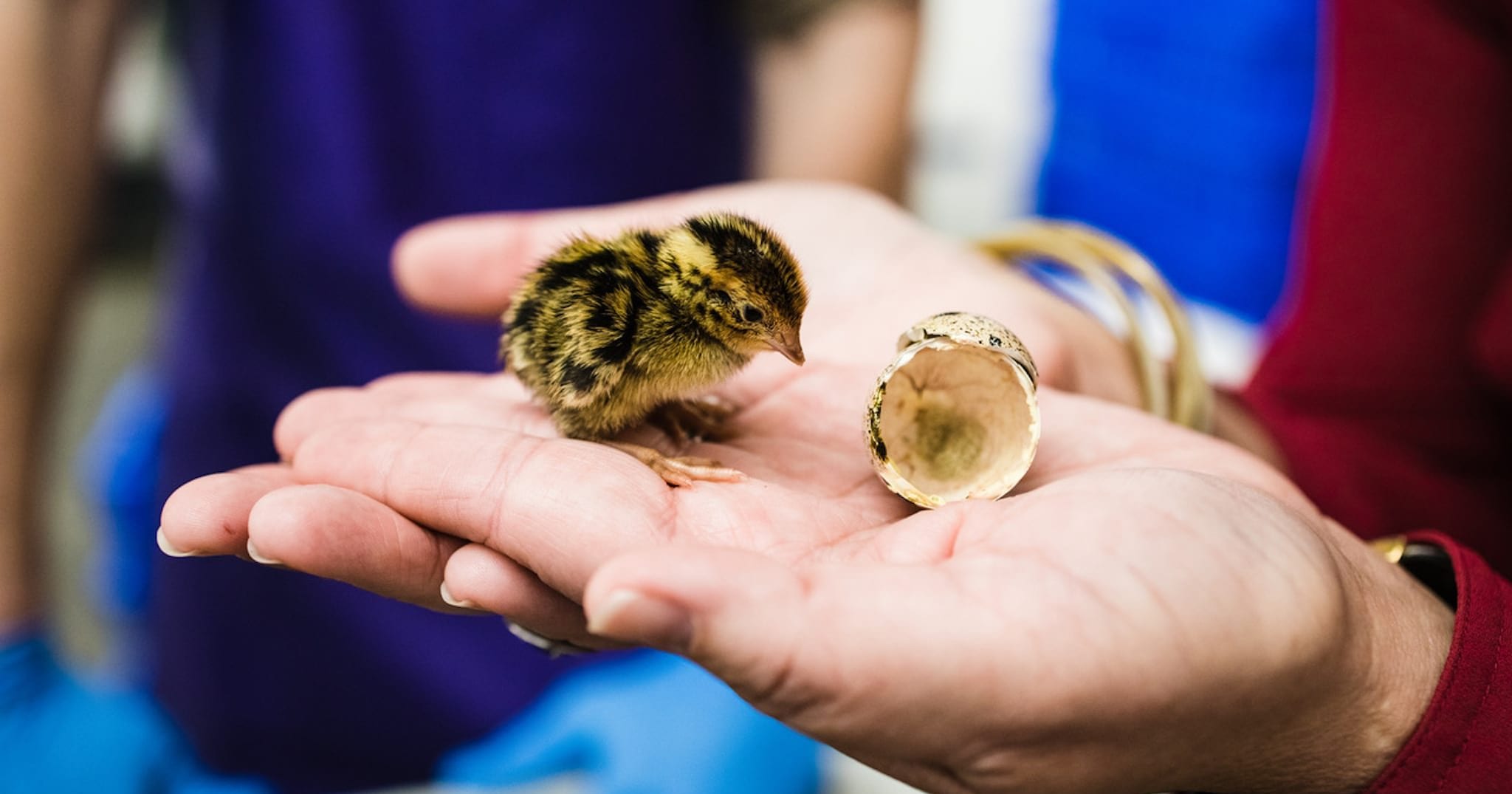A family-run South Carolina operation is putting the birds on some of the world’s top tables
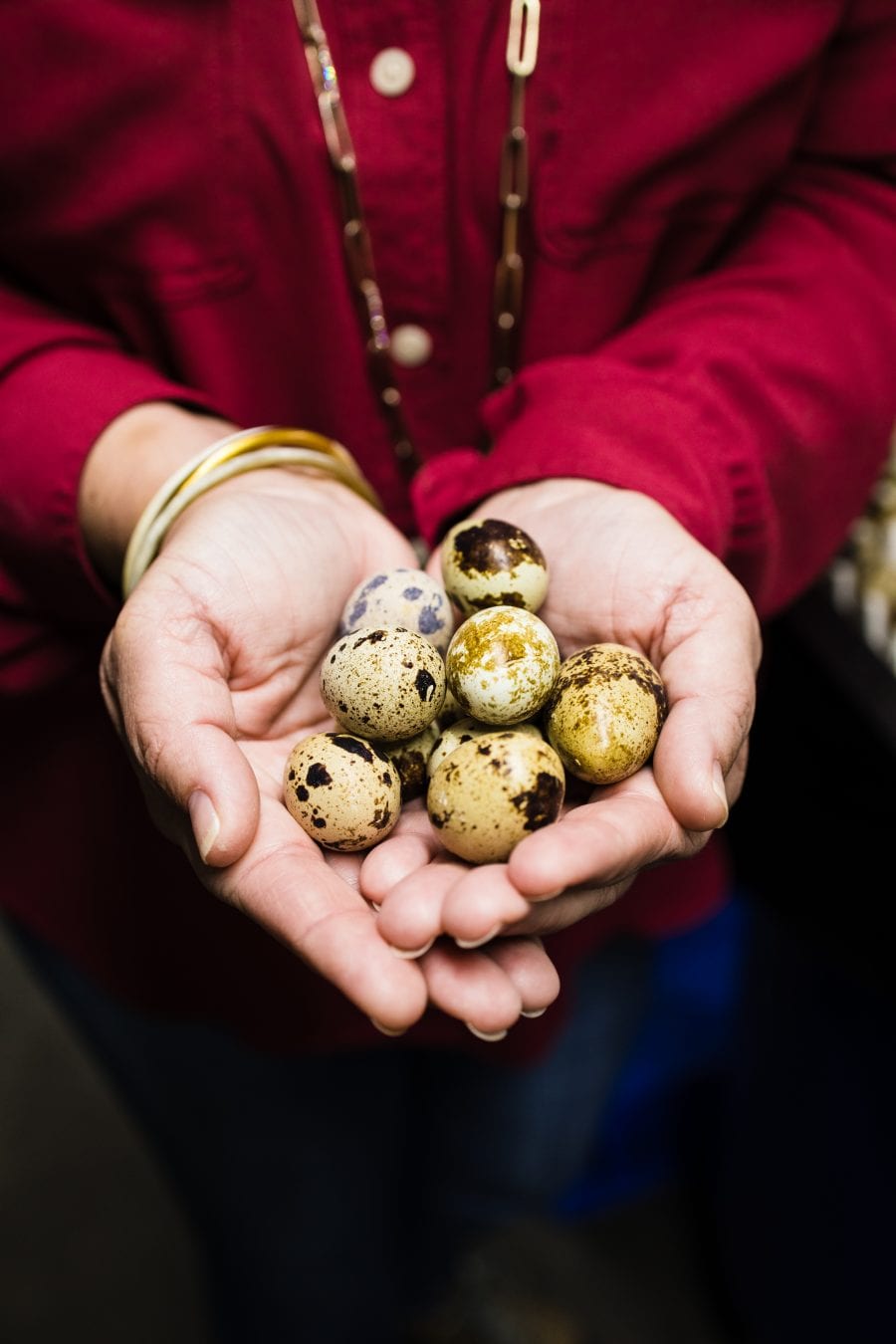
South Carolina is quail country. Their numbers in the wild are not what they used to be, but they remain—hidden in the hedgerows and overgrown ditch banks that border farmland, lurking in the briar thickets and impenetrable brambles of pine savannahs. You’ll hear them before you see them. Their telltale “sliding whistle” call gives them away—as does their scent, for dogs in the know. For generations, hunters have waited patiently for that electric moment when their bird dog comes to a tense, quivering halt, tail extended, paw retracted, nose locked in point position toward a covey. Then all hell breaks loose. The covey bursts from its enclosure in a fluttering, lightning-fast, deliberately befuddling trajectory, more often than not rocketing straight past the hunter unscathed. With luck, a seasoned shooter will bag a few to take home, marinate them in buttermilk, and fry the birds up like chicken, or grill them and pile them on a thick bed of grits for breakfast.
Bill Odom, founder of Manchester Farms in mid-state South Carolina, knows this agrarian tradition well. He grew up hunting quail near Manchester State Forest and raised bobwhites in a backyard pen to train his dogs to their scent. His degree in poultry science from Clemson University, plus years of professional expertise supervising chicken farms for Campbell Soup Company, gave him a serious edge for husbandry. His flock grew beyond expectation. Neighbors asked to purchase quail for consumption, so Odom and his family began dressing birds on a backyard picnic table for distribution. When Campbell’s offered Odom a promotion that would have required a move to the company’s New Jersey headquarters, he stood his ground. His roots were too deep, and he had the seeds of a promising business right here.
In 1974, Odom launched the first commercial quail farm in the United States. Fast forward several decades, and Manchester Farms is now helmed by Odom’s daughter, Brittney Miller, and her husband, Matt. Odom still pops by to nod his approval. At any given time, Manchester Farms has half a million quail on the ground, destined for the kitchens of top chefs and home cooks from Charleston to Los Angeles to Dubai. South Carolina is quail country indeed.
Before dawn, upward of 100,000 quail chicks will burst through their speckled shells, peeping and cheeping and scurrying in a cacophony of cuteness.
Raising Quail
Outside of the hatchery ten miles east of Columbia, Thursday begins like any other day. A distant train whistles. A bobcat slinks across the road. Neighboring cotton fields turn to stubble in the winter sun. Yet today is special, for every Thursday is hatch day. Before dawn, upward of 100,000 quail chicks will burst through their speckled shells, peeping and cheeping and scurrying in a cacophony of cuteness. “It’s impossible to have a bad day on hatch day,” says Miller. “They’re like little popcorn coming out of their shells. And it’s fun because you are the first face they’ve ever seen.” The eggs come from Manchester Farms’ separate breeding facility, where hens (aka “the ladies”) socialize in three-room “condos” and average one egg every thirty-six hours. Eggs are gathered, transported to the hatchery, and placed in racks in a cool room for their two-week incubation. To simulate nature, where mother hens roll their eggs around in the nest, the racks gently tilt every thirty minutes to prevent the yolk from attaching to the shell. Eggs are then flipped into white baskets for a three-day stint in the warm hatchery room, prompting the chicks to make their debut. By 5 am on Thursday, each basket swarms with an army of excited, striped, squirming fluff-balls, no two alike.
“The first three days are critical to their existence,” says Miller. Alarms will sound if there’s even a fraction of a degree of change in room temperature. Then the younglings make a quick fifteen-minute journey in a climate-controlled truck to their first playground: a 200-foot-long covered barn. A staff member, typically farm manager Tyrone Alston, stands at the far end of the facility and whistles to the chicks who come racing forward in unabashed enthusiasm, spreading out across the barn floor and discovering the tap-the-beak water and food sources. Circulating fans keep the air fresh.
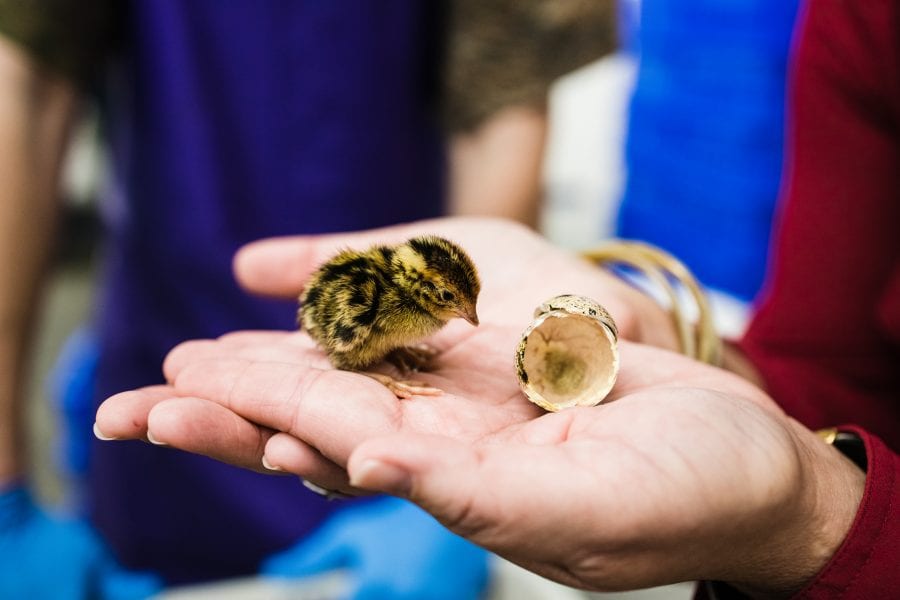
As the birds grow in size, they graduate to other “grow-out barns” separated by some miles to minimize setbacks in the event of natural disasters like flooding, tornadoes, or hurricanes (the farm lost all but one facility during 1989’s Hurricane Hugo and rebuilt based on the success of that single barn). Free to roam within their spacious digs, the birds are not technically free-range; they remain inside for their own protection. After all, everything on earth wants to eat them, from armadillos to snakes, fire ants, bobcats, coyotes, hawks, wild turkeys, wild hogs, even the occasional bald eagle deviating from its post along the Congaree River.
“There’s plenty of room for them to fly around inside if they want to,” Miller says. “And we feed them a wholesome diet supplemented with vitamins, minerals, enzymes, and probiotics. We’re even experimenting with adding oregano and yucca. What’s good for us is good for them.”
Which also means no growth hormones and no antibiotics. “We’ve only had to use antibiotics once in forty years,” Miller says. “We figure that if we give the birds a stress-free, happy and healthy life, you shouldn’t need antibiotics. We’ve always done what we thought was right. Our moral barometer is the best barometer. The all-natural approach is now on trend, but it’s just who we’ve been forever and ever.”
Old World Values
At Manchester Farms, the quail are not native bobwhites. Although bobwhites do inhabit the adjacent forest, these are pharaoh quail: a hardier, less disease-prone, less excitable variety, bred for millennia in Europe, Africa, Asia, and now here. In Odom’s early 1970s experiments, he realized quickly that New World bobwhites are too sensitive for commercial captivity, and he researched and purchased Old World pharaoh quail from Canada. The current flocks descend from those.
“Bobwhites are very skittish,” Miller explains. “Opening a barn door can startle them so much that you can lose a significant number of them to heart attacks. They are anxious, nervous creatures, and don’t handle well.” Even worse, bobwhites in captivity can be both murderous and cannibalistic: two is company but three’s a crowd. Pharaohs, by comparison, are gentle and mellow.
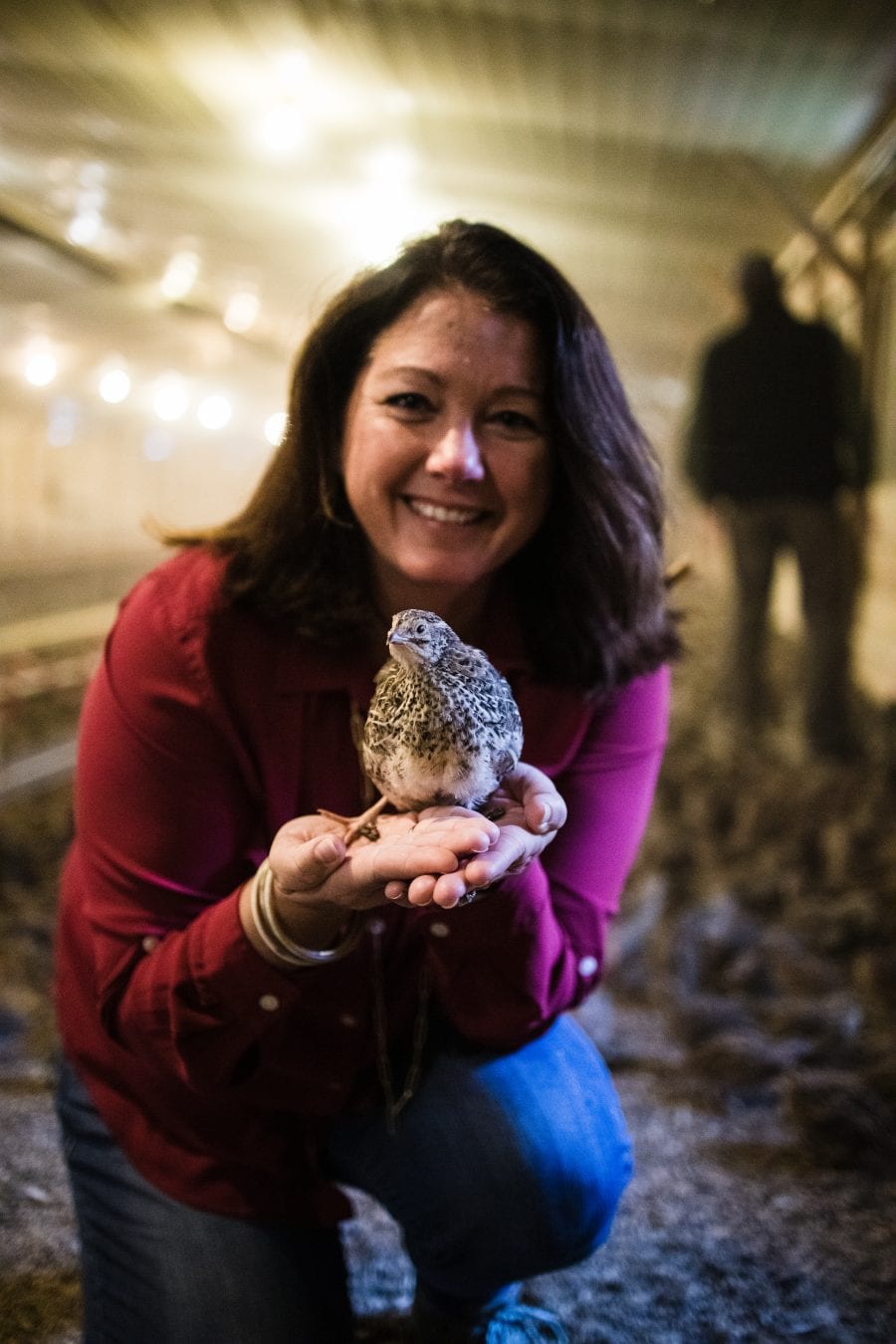
Pharaohs do, however, have demands. “We’ve got forty-seven years of experience knowing what our flock likes: fresh air, the right amount of light, the best nutrition, the right temperature of water—not too hot, not too cold. Otherwise they can get sideways on each other. The aim is to provide minimal stress for them. We want to walk up to the barn and hear them cooing, to know they are really happy.”
And happy birds mean quiet birds. At Manchester Farms, if you open the barn door of a grow-out facility housing 75,000 to 90,000 plump little quail, you’ll hear subdued, melodic peeps. The birds cock their heads sideways to look at you, inquisitive but calm, a sea of mottled hues of rust, sienna, auburn, and charcoal. Their profiles harken to chiseled Egyptian hieroglyphs depicting their ancestor, the coturnix quail.
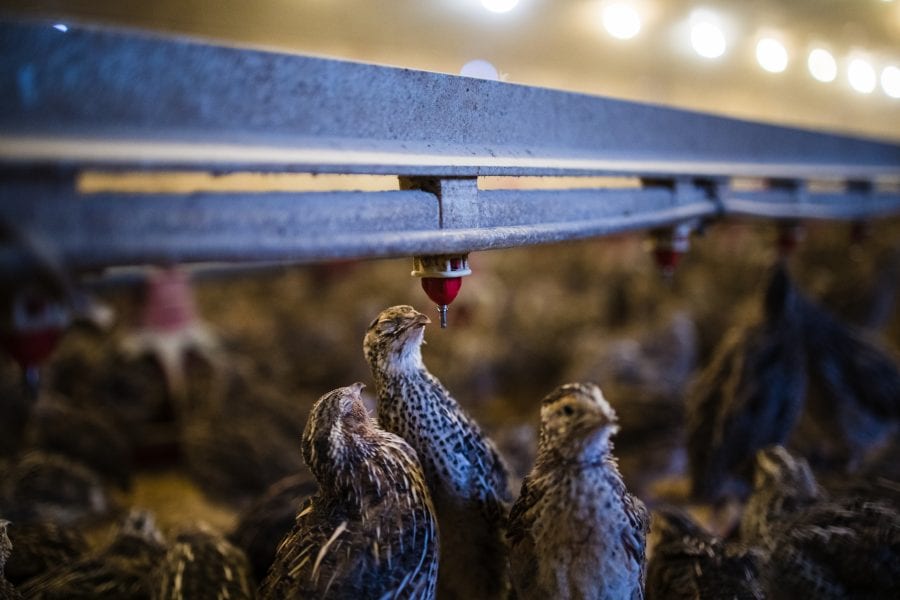
Farm to Table
At five weeks, the quail are fully grown. Larger females are hand-selected as egg layers; the others are destined for consumption. To process the birds in the most expedient fashion possible, Miller’s parents looked across the Atlantic, where commercially raised quail were prevalent. In the late 1970s and early ’80s, Odom and his wife, Janet, toured European facilities, then ordered custom equipment to install back home.
For the quail, the end comes swiftly. A quick dunk in an electrolyzed bath calms them with a light current. “Then it’s a matter of a half-second between the stun and the cut, very quick and very humane,” says Miller. The machinery whisks them through an assembly line for defeathering and rinsing, and a finisher massages off any remaining feathers without damaging the skin. From there, the birds are hand-processed by employees to yield a clean, butterflied, and uniform product: “Boners” debone the birds in the European style, leaving in the wing and first leg joint; “butters” remove the tailbones, and “pinners” insert a stainless-steel V pin so the birds stack well.“It’s an art and a rhythm. We have a team of ladies who will debone one hundred quail in an hour without ripping the skin or tearing the meat. They even have initialed scissors with their preference of handle and blade, just like a chef has his knife kit.”
Manchester Farms may be the oldest quail farm in the US, but by design and by principal, it is not the largest. “We’re a boutique farm with our eye on craftsmanship,” Miller explains. “We’re not about volume. Harvesting four million quail per year is kind of our sweet spot. That’s the size we are comfortable with. We won’t ever be the Tysons of the world, and we don’t want to be.” (To put that into perspective, there are commercial chicken farms that kill a quarter million birds a day.) Nothing goes to waste. Bones are sold to chefs for stock. Innards are destined for gourmet dog food companies. Manure from the grow-houses goes to a local turf company to be composted into fabulously rich dirt. “We try to give back one hundred percent,” Miller says. “It’s the final step of closing the circle of life and trying to celebrate these birds as much as possible.”
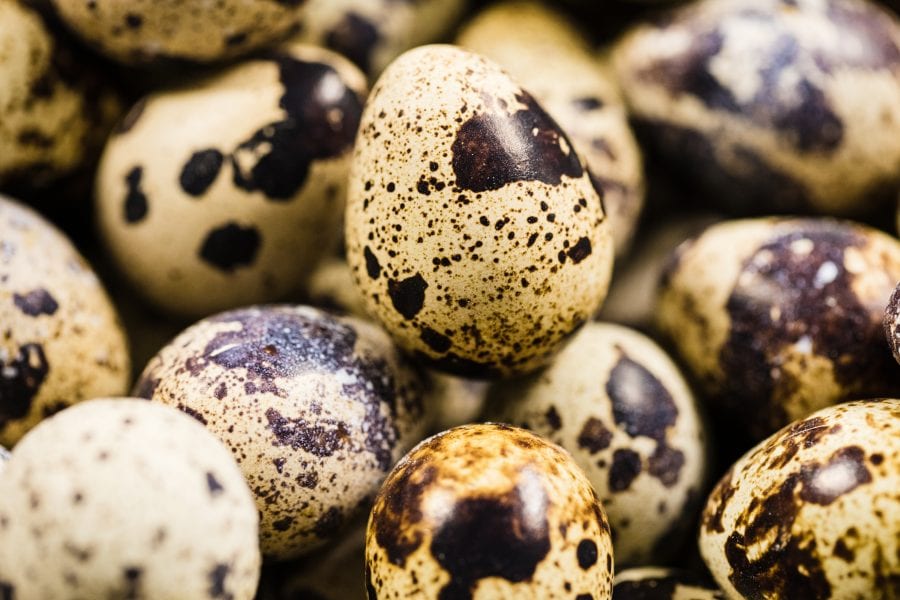
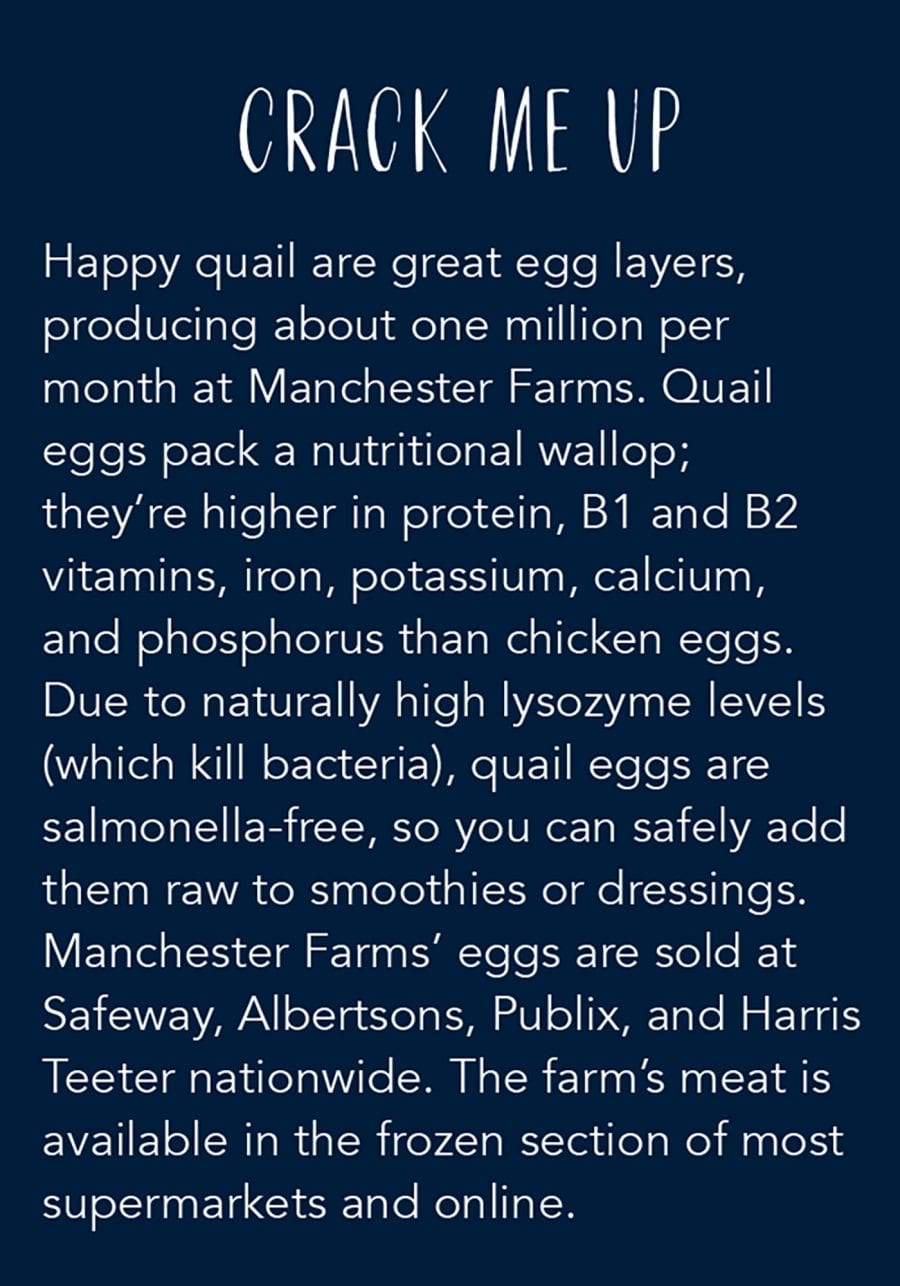
Flock to Feast
Four miles east of the hatching facility, a small crowd of eager diners assembles beneath an open pavilion at Wavering Place, a plantation bed and breakfast and event space. On the menu for the evening: six courses, all featuring Manchester Farms quail and eggs, prepared by chef Will Lacey of Driftwood Pantry. A fire roars and guests cloak themselves in tartan wool throws as they savor ponzu-marinated quail eggs with peanut-sesame powder, then quail chorizo-stuffed poblanos. In a delicious take on chicken and waffles, Lacey seasons quail in curried buttermilk before frying the boneless meat to a crisp and serving it over toasted sweet potato “eggos.” Then comes roasted quail with whipped goat cheese and macerated grapes, followed by cured quail eggs in a charred brussels sprout salad. The symphony of quail concludes with egg whites whipped into meringue, and yolks whipped into sweet corn mousse.
Between courses, Miller stands up to say a few words. “We’ve got ladies on our staff who have been deboning quail by hand for forty years. And now so are their daughters and granddaughters. We call them the flock. Now you are friends of the flock.”
share
trending content
-
Celebrating Our Heritage: An America-250 Invitation
by TLP's Partners -
Cookbook Review: The Weekday Vegetarians Get Simple
by Erin Byers Murray -
20 Places to Eat & Drink in the South Carolina Mountains
-
Get To Know Athens, Georgia
-
Black-Owned Bites in Columbia, South Carolina
by TLP's Partners
More From In the Field
-
5 Things in Landon Bryant’s Fridge
-
Emeril Lagasse’s Educational Garden-to-Kitchen Program
-
Meet 3 Unexpected Guardians of Legendary Southern Restaurants
-
Our Top 10 Recipes of 2025
-
ShellBound: An Anthology of Southern Oyster Culture | Episode 3: Louisiana


